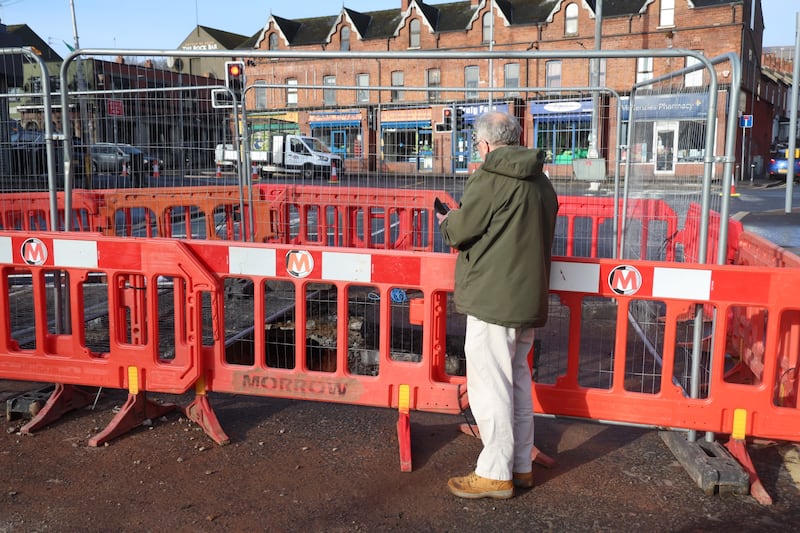Old tram lines are believed to have been discovered underneath the road surface in south Belfast.
Cobble stones and tram tracks were spotted as a void in the Donegall Road emerged on Sunday.
It came after work began by NI Water to carry out lead pipe replacement on the route.
It is believed that the void may have been caused by the collapse of a combined sewer.
The route is closed at its junction with Falls Road, near Aldo’s Fish & Chip Shop, and could remain shut for a number of days with traffic delays expected in the area.
A NI Water spokesperson said: “During the excavation work, a void was found underneath the carriageway which, after a CCTV survey, was found to have been caused by the collapse of a combined sewer running down the Donegall Road.
“Work commenced on the repair Sunday afternoon requiring the closure of Donegall Road.

“Unfortunately, due to the complexity of the work, the repair had to continue on Monday morning requiring the road to remain closed.
“NI Water would like to reassure road users we are working as quickly as possible and would like to thank them for their patience while this essential work is completed.”
However, a closer inspection on Monday of the hole in the ground appears to indicate old cobble stones and tram tracks.
Belfast was one of the first cities in the world to adopt electric trams in the early 20th century as the horse-drawn equivalent were phased out.

The tram network expanded across many parts of the city and were in use into the 1950s when the tracks were torn up.
The last tram rolled through the Belfast in 1954.

The Department for Infrastructure said: “Cobbles and tram tracks are part of the history of Belfast and it is not unusual for them to be uncovered as development has taken place in the city over the years. They are not considered to be the cause of the sewer collapse.”









